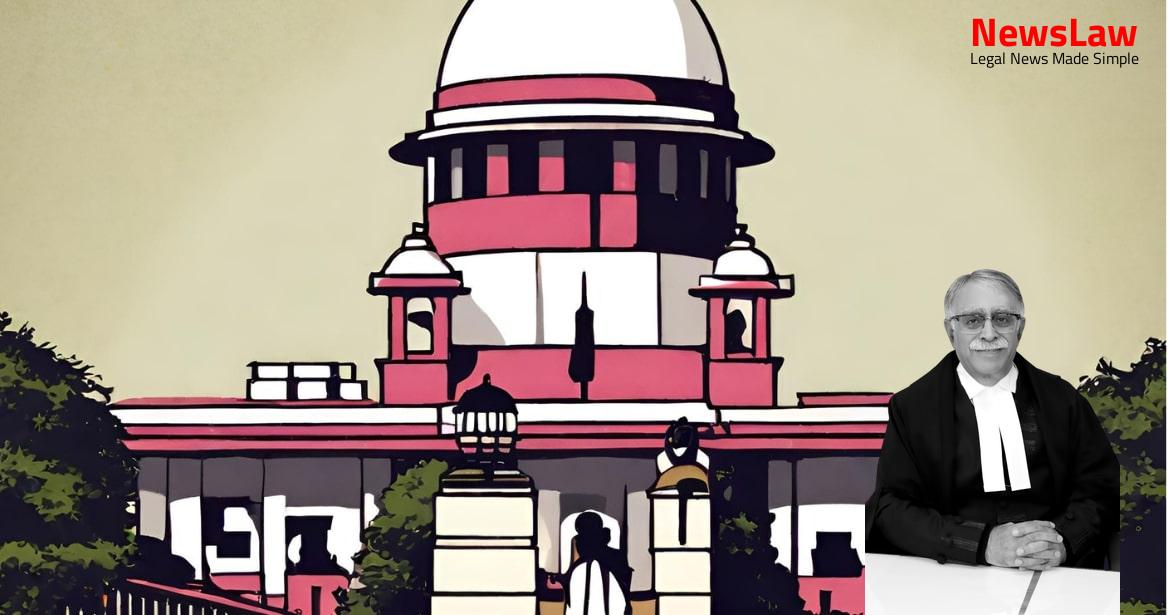Delve into the nuanced legal analysis conducted by the court regarding the bail grant under the NDPS Act in our latest blog post. The post sheds light on the specific provisions and considerations that govern bail applications in cases related to narcotics offenses. Stay informed about the legal complexities involved in such crucial decisions by the judiciary.
Facts
- 9,900 tablets weighing 990 gms were recovered during the search conducted by the NCB officials at the premises of the co-accused, Manoj Kumar at Ludhiana.
- Respondent disclosed illegal selling and purchasing of tablets and capsules from Promod Jaipuria.
- Appellant-NCB aggrieved by the High Court’s order granting post-arrest bail to the respondent accused.
- Case based on secret information leading to search at a godown suspected of containing narcotic drugs.
- Raid team found a cache of drugs at Promod Jaipuria’s godown based on respondent’s disclosure.
- Respondent taken into custody on 11 January 2020 and moved two bail applications which were initially rejected.
- Drugs recovered included various psychotropic substances and narcotics mislabeled as surgical items.
- Accused Aggarwal disclosed sourcing of drugs from respondent and Promod Jaipuria.
- Accused Aggarwal led raiding team to respondent’s premises.
- Petition for bail under Section 439 of CrPC granted by Single Judge of High Court.
Also Read: Time as Essence of Contract in Sale Agreement: Legal Analysis
Arguments
- The appellant-Narcotics Control Bureau (NCB) and the respondent had retracted their statements recorded under Section 67 of the NDPS Act, rendering them inadmissible.
- No incriminating material was found on the respondent or at his residence and shop during searches.
- The High Court allegedly overlooked incriminating disclosures made by the respondent leading to seizure of drugs from a co-accused’s godown.
- The offense falls under recovery of commercial quantity of narcotic drugs under the NDPS Act.
- The appellant argues that the respondent’s involvement in an organized drug smuggling gang warrants denial of bail.
- Circumstantial evidence against the respondent disentitles him for bail.
- The respondent, described as a small-time shopkeeper, was allegedly part of a drug smuggling gang as per statements of co-accused.
- The respondent was granted bail by the High Court after over a year in custody.
- High Court followed judicial dicta in granting bail to the respondent.
- Charge-sheet was already filed.
- Confessional statements of the accused were recorded under Section 67 of the NDPS Act.
- No other incriminating material was found.
- Respondent was rightly admitted to bail based on the above points.
- No infirmity in the impugned order according to the respondent’s counsel.
Also Read: Retirement Age of PTI/Sports Officer in University
Analysis
- Section 37 of the NDPS Act imposes restrictions on the power of the Court when granting bail to a person accused of an offence under the Act.
- The Court should not weigh the evidence to determine guilt but focus on reasonable grounds for believing the accused is not guilty and unlikely to commit an offence while on bail.
- Confessional statements recorded under Section 67 of the NDPS Act are inadmissible in trial as per the Tofan Singh case.
- The accused’s admissions while in custody should be set aside as per law.
- Circumstantial evidence, such as disclosures leading to a raid and recovery of drugs, should dissuade the court from granting bail if there are reasonable grounds to believe the accused is guilty.
- Public Prosecutor must be given an opportunity to oppose the application for release by an accused person.
- If the application is opposed, the Court must be satisfied that there are reasonable grounds to believe the accused is not guilty of the offense.
- The expression ‘reasonable grounds’ in clause (b) of Sub-Section (1) of Section 37 means credible and plausible reasons for the court to believe the accused is not guilty.
- The court must also be satisfied that the accused is unlikely to commit any offence while on bail.
- The term ‘reasonable grounds’ has been discussed in various court rulings, including ‘Collector of Customs, New Delhi v. Ahmadalieva Nodira.’
- The narrow parameters of bail under Section 37 of the Act have not been satisfied in this case.
- It is not safe to conclude that the respondent has proven he is not guilty and should be granted bail.
- The assumption of the respondent’s innocence is premature at this stage.
- The lack of possession of incriminating evidence does not automatically imply innocence.
Decision
- The length of the period of custody or the fact that the charge-sheet has been filed and the trial has commenced are not considered persuasive grounds for granting relief to the respondent under Section 37 of the NDPS Act.
- The appeals are allowed, and the order releasing the respondent on post-arrest bail is quashed and set aside.
- The bail bonds of the respondent are cancelled, and he is directed to be taken into custody immediately.
Case Title: NARCOTICS CONTROL BUREAU Vs. MOHIT AGARWAL (2022 INSC 730)
Case Number: Crl.A. No.-001001-001002 / 2022



